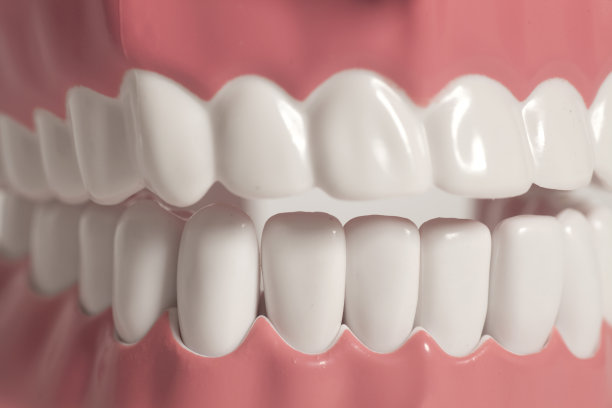Summary: Dental implantation is a restorative procedure that offers an effective solution for tooth loss. However, ensuring optimal success and recovery requires careful consideration of several guidelines and precautions. This article outlines four essential areas to focus on before undergoing dental implantation: choosing the right dentist, understanding the procedure and its risks, preparing for post-operative care, and recognizing the importance of a healthy lifestyle. Each of these areas provides valuable insights that can help patients achieve the best possible outcomes.
1. Choosing the Right Dentist for Your Implant

One of the most crucial steps in the dental implantation process is selecting a qualified dentist or oral surgeon. It’s essential to research practitioners credentials, experience, and specialization in dental implants. Reading patient reviews and testimonials can offer insight into their track record in performing successful procedures.
Additionally, scheduling a consultation allows you to ask questions and gauge their approach to treatment. A good dentist will take the time to listen and address your concerns while outlining a comprehensive treatment plan. Dont hesitate to seek a second opinion if you feel unsure about the recommendations provided.
Moreover, consider the technology and facilities the dental office offers. Advanced technology in implants and a sterile environment play a significant role in the safety and effectiveness of the procedure. Ensure that the practice adheres to current health and safety guidelines.
2. Understanding the Procedure and Its Risks
Before undergoing dental implantation, it’s vital to familiarize yourself with the procedure. Dental implants typically involve the insertion of titanium screws into the jawbone, acting as artificial roots for new teeth. Understanding how the process occurs reduces anxiety and prepares you for what to expect during the treatment.
However, like any surgical procedure, dental implants come with potential risks. These may include infection, nerve damage, implant failure, or complications from anesthesia. It is crucial to discuss these risks with your dentist, who can provide insights on how to mitigate them and improve the chances of success.
Additionally, understanding the time it takes for recovery should not be overlooked. The healing process can vary between individuals, sometimes requiring several months for the bone to integrate with the implant before placing the permanent crown. Properly managing your expectations about the timeline can alleviate potential frustration.
3. Preparing for Post-Operative Care
Post-operative care is integral to the success of your dental implantation. Prior to the procedure, you should discuss with your dentist what you need to do afterwards. Having a recovery plan in place will help ensure a smooth healing process.
After the surgery, you may experience some swelling and discomfort. Your dentist will likely recommend the use of ice packs and prescribe pain medications as needed. Following instructions for oral hygiene is essential because maintaining cleanliness prevents infections that could jeopardize the implant.
It’s also a good practice to plan for adequate rest and nutrition post-surgery. Soft foods are ideal immediately following the procedure to avoid any pressure on the implants. Staying hydrated and consuming foods rich in vitamins and minerals can support your body’s healing process.
4. Importance of a Healthy Lifestyle for Recovery
A healthy lifestyle plays a significant role in the success of dental implants. Committing to a well-balanced diet, avoiding smoking, and minimizing alcohol consumption are fundamental aspects that contribute to healing. Smoking, in particular, has been linked to higher failure rates in dental implants due to reduced blood flow to the gums.
Regular physical activity can also improve general health, which supports recovery. However, moderate activity levels should be maintained, especially in the first few weeks post-surgery. Always consult with your dentist about what type of exercises are appropriate during your recovery phase.
Lastly, continuing to maintain regular dental check-ups post-implantation is crucial. These visits allow your dentist to monitor the implants health and catch any potential issues early, ensuring that your investment in dental health pays off long-term.
Summary:
In conclusion, undergoing dental implantation can dramatically improve your quality of life, provided you take essential guidelines and precautions into account. Selecting the right dentist, understanding the procedure, preparing for post-operative care, and maintaining a healthy lifestyle are all critical factors that contribute to optimal success and recovery. By prioritizing these aspects, you will set the foundation for a smooth and successful dental implant journey.
This article is compiled by Vickong Dental and the content is for reference only.
Vickong Dental
Vickong Dental is a large medical group established in Hong Kong in 2008 by professors from well-known medical universities in Guangdong and Hong Kong, as well as medical doctors from key national '985' universities (including Master's supervisors and senior professors). The chain of branches brings together expert dentists with PhDs and Master's degrees from Hong Kong and Mainland China, committed to providing high-quality dental treatment.
"Vickong Dental Practices the University Motto of 'Healing and Serving Society,' with a Stable Operation for Sixteen Years. It Has Been honored with Hong Kong Enterprise Leaders's Choice,' and is a Global Trusted Implant Center for the Nobel Implant System. Recommended by Hong Kong Metro Broadcast and Guangdong Television, it Serves Customers from Over Thirty Countries and Regions, Gaining the Trust and Favor of Citizens from the Guangdong-Hong Kong-Macau Greater Bay Area and Surrounding Cities.

Thousands of customers' unanimous praise
The most recognized and highly recommended dental service by customers in the Guangdong-Hong Kong-Macau Greater Bay Area
We Ensure You Receive Detailed Care and Attention Here
Hong Kong standards, Shenzhen prices, Your Trusted English-speaking dentists

Vickong Dental Medical-Grade Instrument Disinfection Process
Vickong Dental Medical-Grade Instrument Disinfection Process

Vickong Dental Chain: A Warm and Comfortable Environment for Treatment






Appointment Hours

Q&A
Why choose Vickong Dental?
Vickong Dental practices the university motto 「Medicine to Benefit Society」, with each branch bringing together highly qualified dentists with doctoral and master’s degrees from Hong Kong and the Mainland, and has maintained seventeen years of steady operation。Recipient of 「2024 Hong Kong Enterprise Leaders Brand」, 「2025 Hong Kong Enterprise Leaders Brand」, a Nobel Biocare Global Trusted Implant Center, and a brand recommended by Metro Radio Hong Kong and Guangdong TV。
To date, we have served customers from more than thirty countries and regions,earning exceptionally high word-of-mouth recognition and trusted recommendations from residents across the Guangdong-Hong Kong-Macao Greater Bay Area and surrounding cities
We have eight major branches in Zhuhai、Shenzhen,and a consultation and service assurance center in Hong Kong,so you can book a free consultation at any time for any questions,which is very reassuring.
If I do not accept the quotation after the CT scan, will I be charged??
No! As long as the actual treatment has not started, you will not be charged any fees.
Will there be any additional charges during the treatment process?
No, there won’t be any additional charges. Before treatment begins, we will clearly explain the treatment plan and its corresponding fees. Only after the patient agrees and signs the consent form will we proceed with the dental service.
Can I pay in Hong Kong dollars?
Yes. Vickong Dental accepts payment in Hong Kong dollars. The amount will be converted based on the exchange rate of the day, and the applicable rate will be clearly communicated to you in advance.
Can I reschedule my appointment at any time?
Yes. Please contact us via **WeChat** or **WhatsApp** as early as possible, providing your original appointment time and details, along with your preferred new date and time slot for rescheduling.













